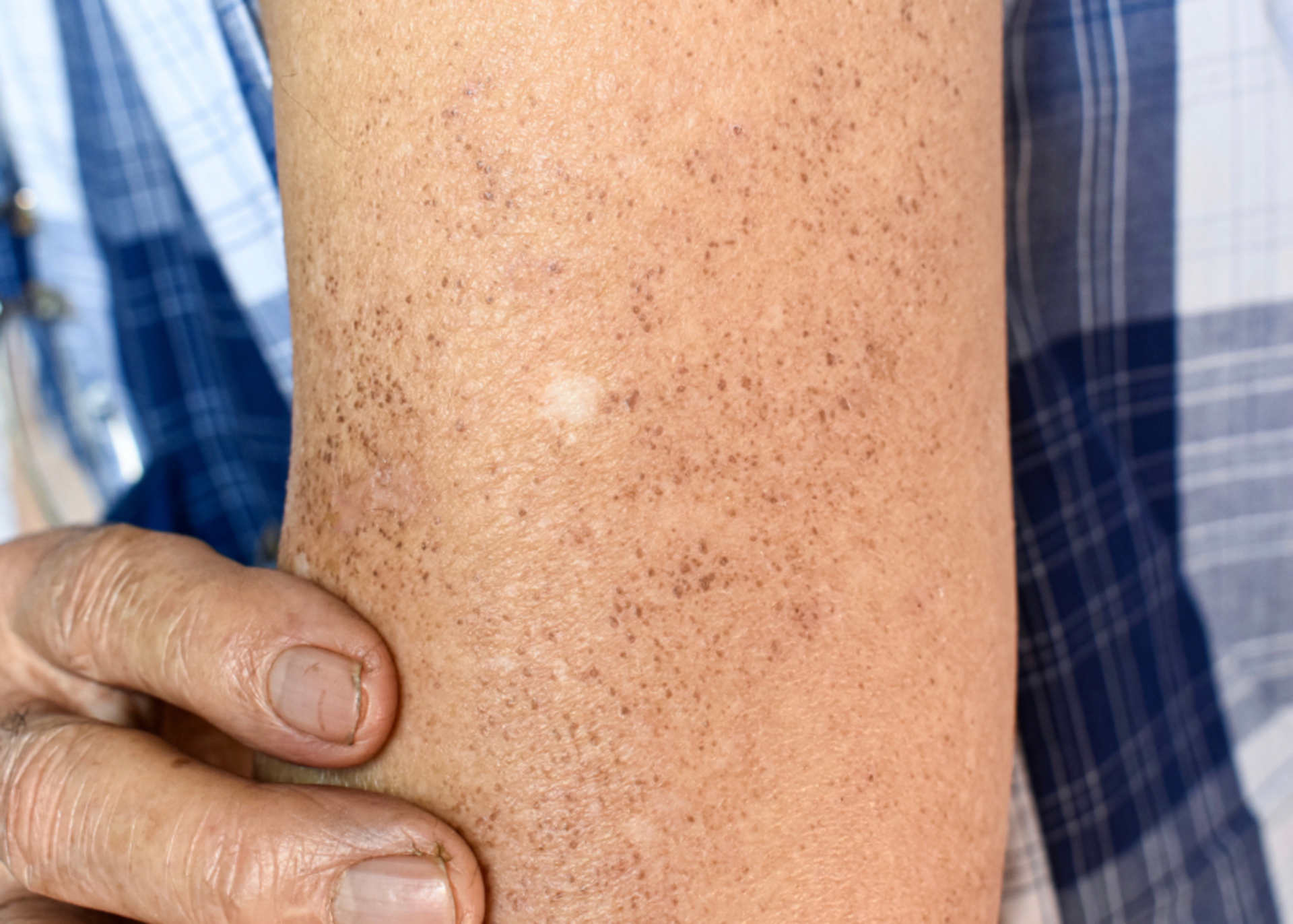White spots on the skin can be a common concern for many individuals. These spots may appear on the face, hands, arms, legs, or other parts of the body, causing cosmetic distress. While most cases are harmless, some may indicate underlying skin conditions that require medical attention. Dr. Sandhya Hippargekar, a leading Consultant Cosmetologist & Dermatologist in Katraj Ambegaon, Pune, explains the possible causes, treatments, and preventive measures for white spots on the skin.
What Causes White Spots on Skin?
White spots can appear due to various reasons, ranging from minor pigmentation issues to chronic skin conditions. Some of the common causes include:
- Vitiligo: Vitiligo is a long-term skin condition that causes loss of pigment, leading to white patches on the skin. It occurs when the body's immune system mistakenly attacks the melanocytes (cells responsible for skin color). While vitiligo is not harmful, it can affect a person’s self-confidence.
- Pityriasis Alba: Pityriasis Alba is a mild skin condition often seen in children and teenagers. It appears as dry, scaly white patches, primarily on the face. This condition is associated with eczema and usually resolves over time without specific treatment.
- Tinea Versicolor: Tinea Versicolor, also known as fungal infection of the skin, is caused by an overgrowth of yeast. It leads to white, pink, or brown spots that may appear on the chest, back, neck, or arms. The spots may become more noticeable after sun exposure.
- Idiopathic Guttate Hypomelanosis (IGH): IGH is a condition where small, round white spots develop on sun-exposed areas like the forearms and legs. It is often linked to aging and excessive sun exposure. The exact cause is unknown, but it is believed to be due to reduced melanin production.
- Nutritional Deficiencies: Deficiencies in essential vitamins and minerals, such as vitamin B12, vitamin D, and calcium, can lead to white spots on the skin. A well-balanced diet can help maintain healthy skin pigmentation.
- Sun Damage: Prolonged exposure to the sun can lead to pigmentation changes, resulting in white spots. UV rays can damage melanocytes, leading to uneven skin tone.
- Eczema and Psoriasis: Chronic skin conditions like eczema and psoriasis can cause inflammation, leading to temporary or permanent skin discoloration. These conditions require proper dermatological treatment.
Treatment Options for White Spots
Treatment for white spots depends on the underlying cause. A dermatologist will assess the condition and recommend suitable treatments. Some common options include:
1. Topical Medications
- Corticosteroid creams: Used for conditions like vitiligo and eczema to reduce inflammation and restore pigmentation.
- Antifungal creams: Effective for treating Tinea Versicolor.
- Moisturizers: Help in managing dry, scaly patches caused by Pityriasis Alba.
2. Phototherapy: In cases of vitiligo, controlled UV light therapy (PUVA or narrowband UVB) can help stimulate melanocytes and promote repigmentation.
3. Laser Therapy: Laser treatments can be used to restore pigmentation in certain cases. They are particularly useful for vitiligo and sun-induced white spots.
4. Antifungal Medications: Oral or topical antifungal treatments are prescribed for Tinea Versicolor to control the spread of the infection.
5. Nutritional Supplements: If white spots are caused by vitamin or mineral deficiencies, dietary changes and supplements such as vitamin B12, vitamin D, and folic acid can help improve skin pigmentation.
6. Skin Camouflage & Makeup: For individuals with prominent white spots, medical-grade skin camouflage products can help even out skin tone.
Preventive Measures for White Spots
While some white spots cannot be prevented, certain measures can help maintain healthy skin and reduce the risk of developing pigmentation issues.
1. Sun Protection
- Apply sunscreen with SPF 30+ daily, especially if you spend time outdoors.
- Wear protective clothing, hats, and sunglasses to shield your skin from harmful UV rays.
2. Maintain Proper Skincare
- Keep your skin moisturized to prevent dryness and irritation.
- Use mild, fragrance-free cleansers to avoid skin irritation.
- Avoid excessive exfoliation, which can damage the skin barrier.
3. Eat a Balanced Diet
- Include foods rich in vitamins and minerals that promote skin health.
- Consume foods high in antioxidants, such as leafy greens, berries, and nuts.
- Stay hydrated to keep the skin healthy and supple.
4. Avoid Harsh Chemicals
- Avoid using harsh skincare products that can strip natural oils from the skin.
- Choose dermatologically tested products suitable for your skin type.
5. Regular Dermatologist Check-Ups
- If you notice new or spreading white spots, consult a dermatologist for early diagnosis and treatment. Conditions like vitiligo and fungal infections require professional evaluation and management.
When to See a Dermatologist?
If white spots on your skin:
- Continue to spread or increase in size
- Cause itching, burning, or discomfort
- Appear along with other symptoms like scaling or redness
- Do not improve with home remedies
It’s essential to seek professional advice. Dr. Sandhya Hippargekar, a highly experienced dermatologist in Ambegaon, Pune, can help diagnose the cause of white spots and recommend effective treatment options tailored to your skin needs.
White spots on the skin can result from various factors, including pigmentation disorders, fungal infections, sun damage, or nutritional deficiencies. While some conditions are harmless and temporary, others may require medical attention. By understanding the causes and taking preventive measures, you can maintain healthy, even-toned skin. If you are experiencing white spots, consult Dr. Sandhya Hippargekar, an expert in dermatology and cosmetology, for personalized care and effective treatment.
Read More:Fungal Infections: Causes and Treatments | Dr. Sandhya Hippargekar
